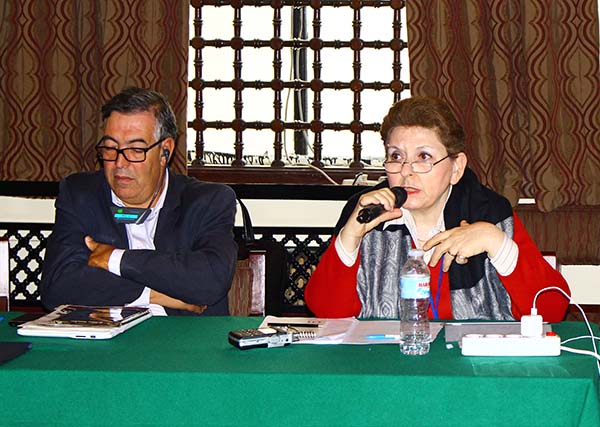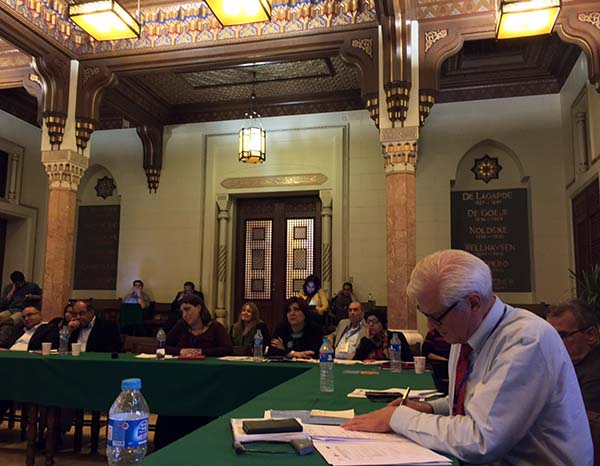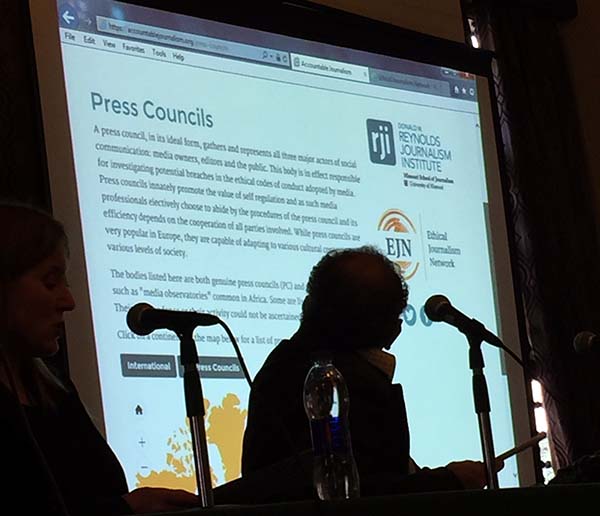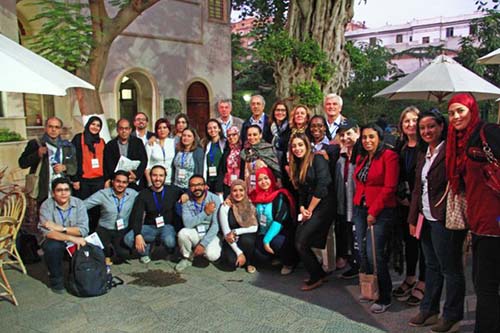Lebanese media mirror the country’s political, economic, and social ambiance, to the detriment of accuracy, fairness and balance in many instances, Magda Abu-Fadil told a Cairo seminar in November 2015.

Moroccan Professor Mohamed Allali and Magda Abu-Fadil at AUC hate speech seminar
The Media Unlimited director listed a number of adjectives, descriptions, stereotypes and ethnic or sectarian slurs that often creep into the public sphere and translate into hate speech, augmented by biased media coverage, she said.

Participants at Cairo hate speech and ethics seminar
It’s also common for politicians from opposing factions to engage in mudslinging through the media, although laws and regulations, not to mention basic media ethics, should act as a deterrent, she added.

Conferees discuss the role of press councils
The two-day seminar, held at the American University in Cairo, was a collaborative effort by the Ethical Journalism Network, the Norwegian Institute of Journalism, the Egyptian Editors Association and the Egypt Media Development Program.

Seminar group
The seminar dealt with the definition of hate speech, how to counter hate speech, case studies from the participants’ respective countries, group discussions with prominent media personalities, and efforts to establish a regional center for hate speech monitoring.
It grouped participants from Egypt, Lebanon, Jordan, Palestine, Iraq, Morocco, Tunisia, Britain, and the United States and is a follow-up to an earlier event in Beirut in 2014.




